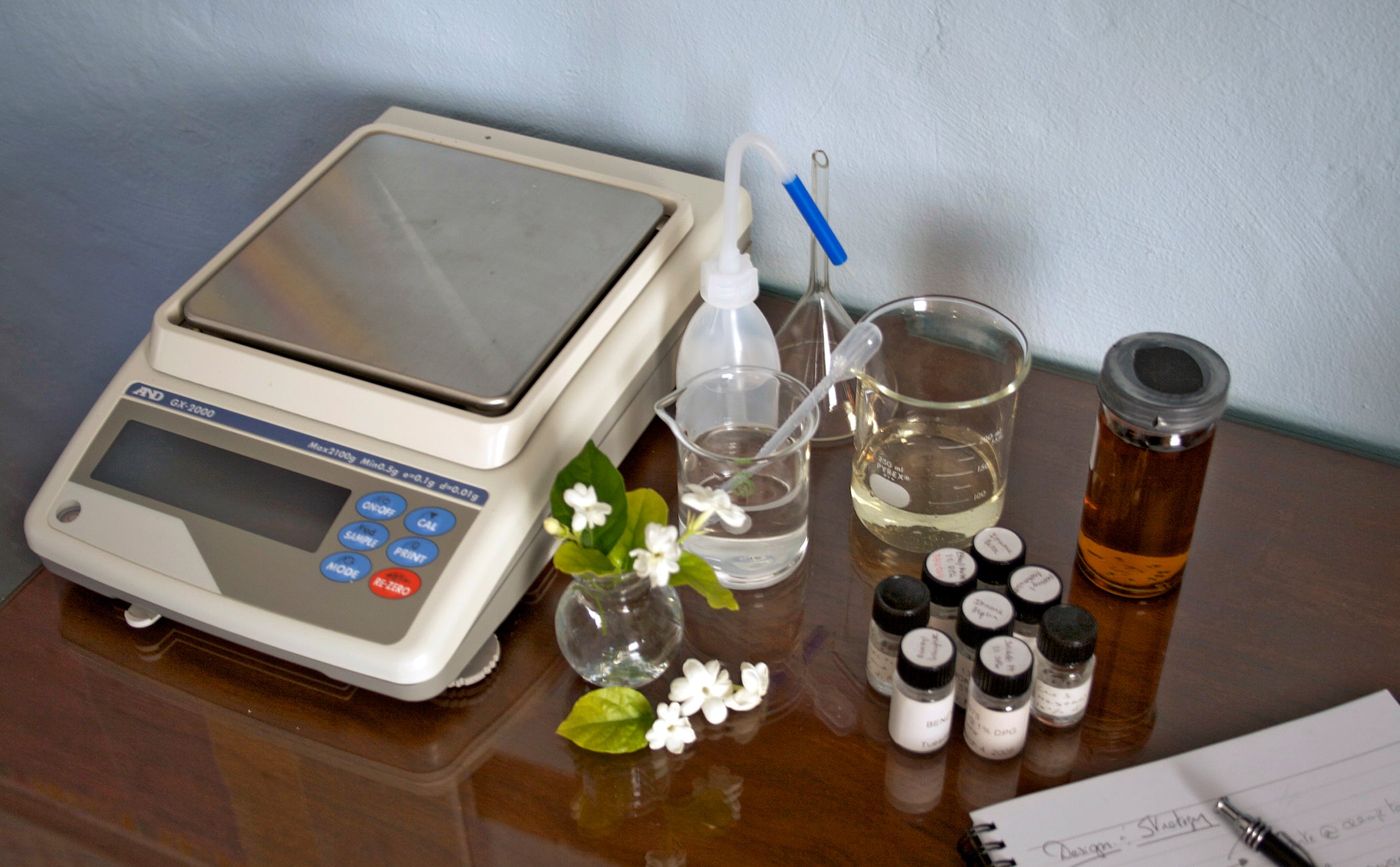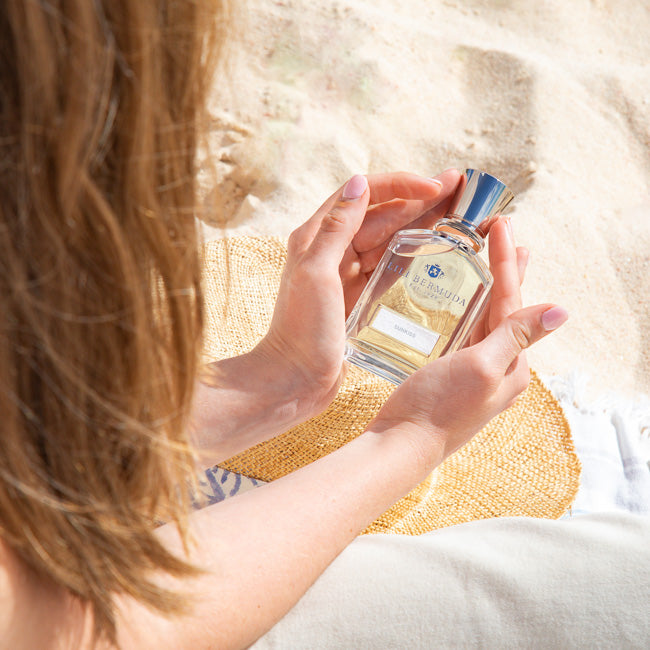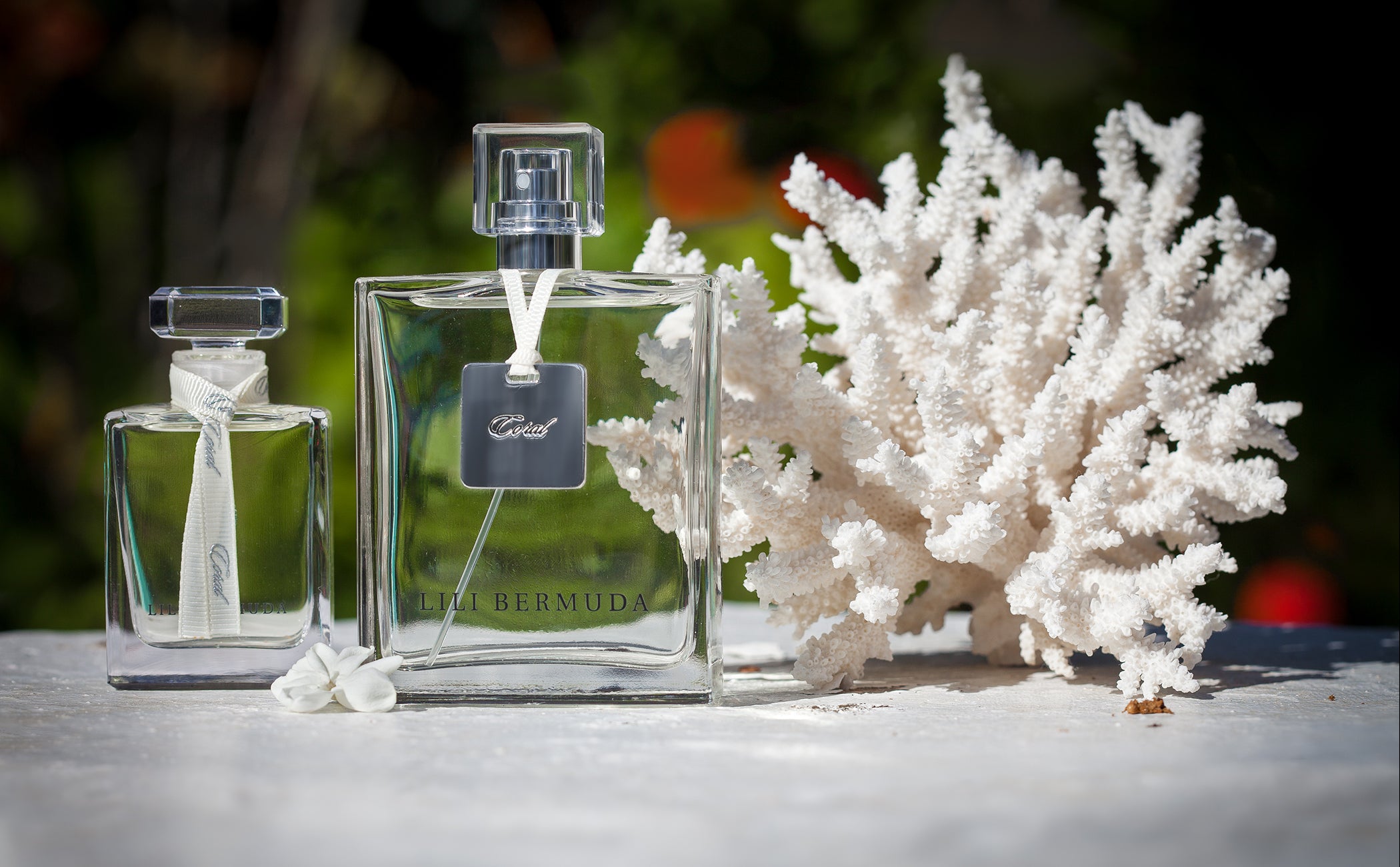
Do your perfumes contain chemicals?
The chemical question in perfume is always a very touchy one. In Perfumery, we work with by-products of chemistry to start with: essential oils typically are extracted through steam distillation, extraction with solvents and CO2, and through other methods of expression. Then, we can add another chemical process to our essential oils and do what we call “fractional distillation” – so we fraction our whole essential oils into their different molecules. We love doing this and here’s why: because we can create natural nuances that we like to exaggerate for our pleasure. For instance, let’s say I want to make a rose perfume. I have a lovely rose oil to start with, but I want to accentuate the fruity side of it as well as it’s dewy (wet) aspect. Chemistry, or chemicals, will allow me to do this. Those molecules are totally natural, but depending on which side of the fence you sit, you may accuse me of using chemicals. I know for sure, that all my colleague perfumers use these…..and sure love doing so.
Here’s another aspect that many professionals in our industry don’t really like to talk about: we, perfumers, also love to use highly engineered materials – what I like to call “Aroma molecules” and what many marketers call “chemicals”. Let me compare our materials with those used in the fashion industry. It used to be that a fashion designer was limited to work with natural materials such as cotton, wool, linen and silk. The advancement in technology increased their “palette” of materials and they now can also work with lycra, nylon, polyester and spandex. One material will not replace the other one, but those “synthetic” materials will allow the fashion designer to create fun effects that he could have never done if he was limited to only work with natural materials.
So, just like in fashion, research and technology have given us the opportunity to develop molecules that allow us to create nuances that we would not be able to achieve by using only natural oils and molecules. To name a few: calone, fructone, and many musks, are extremely important in modern perfumery formulas to give impressions of nature like no other. It would simply be impossible to create an effect of fresh wind, of a ripe fruit or of sheer freshness without the use of these engineered molecules. Here’s another important point: they are safe for us, and are not an allergen compared to many naturals who contain allergens.
Have more questions for our Master Perfumer? Comment below.






